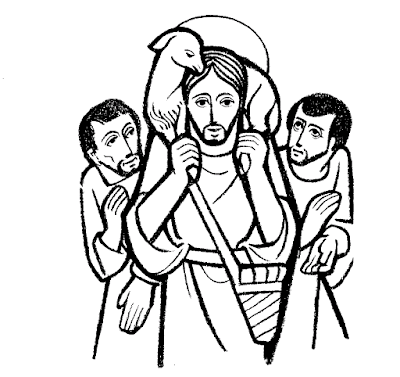XIII SUNDAY IN ORDINARY TIME - Luke 9:51-62
Like in the past - and nowadays maybe more than in the past - we can easily fall pray of radical and fundamentalist attitudes, in which we are ready to destroy all those who oppose us or have different ideas from ours.
Muslims extremists are famous for their violence and for their willingness to kill all those who do not submit to their thinking and their way of life. But they are not the only ones. There have been all kinds of fundamentalists. And today’s gospel speaks of the two brothers, James and John, who wanted to bring punishment from heaven upon those who had not accepted them. They wanted to get rid of those whom they perceived as enemies. However, Jesus “turned and rebuked them” (Lk 9:55). Indeed, we cannot impose faith by force, and we cannot oppress, punish or destroy those who think differently and walk on a different path. The Gospel tells us that they went to another place, leaving the ones who rejected them in peace.
The attitude of James and John is appealing to many of us, and throughout the history of the Church there were many who fell into that attitude, using violence to protect and defend religion or even to impose it on others. We should remember that Jesus stopped Peter from using the sword, when he tried to use it in order to defend the same Jesus.
We cannot accept the use of violence in the name of God, because that is an insult to God and an insult to human dignity. The ones who kill, thinking that they are doing God’s work, are in fact doing Satan’s job, and they are criminals.
**
The second part of this Sunday’s gospel speaks of the exigences of following Jesus. We must follow him with determination, leaving everything behind. He does not accept that we follow him half-way. We may find excuses to delay our decision or even to remain behind, but Jesus does not accept such wavering; he demands total commitment and undivided loyalty.
To the one who wanted to become his follower, Jesus warned that he had nothing to offer him, but hardships:
“Foxes have holes and the birds of the air have nests, but the Son of Man has nowhere to lay his head.” (Lk 9:58)
There are no promises of wealth or power. Jesus had nothing of the kind to give to his followers and he made it clear, so that no one follows him with false expectations. In the life of Jesus and in his preaching, there is nothing of a gospel of wealth, which some people like to preach nowadays. Instead, we must be ready to abandon everything that may get in the way of following Jesus with all heart and mind.
There is a Bemba proverb that says: Uwaitwa tafwala bwino, meaning: Who is called does not dress well, because then and there he must answer the call, avoiding any delay or pretext for delay.
And Jesus leaves a final warning:
“Once the hand is laid on the plough, no one who looks back is fit for the kingdom of God.” (Lk 9:62).
Once we become servants of Jesus Christ, we cannot go back. There is a Bemba saying that can be remembered here: Ulubwelela numa lulalya, meaning: Going back eats you up. After experiencing many hardships in answering his call, Jeremiah thought of going back and abandoning his vocation, but he could not do it, because he could not feel at peace with such decision, which would be a decision of betrayal.
Let us pray for all those who heard the calling of the Lord, so that they may have the strength to remain faithful to their vocation.

